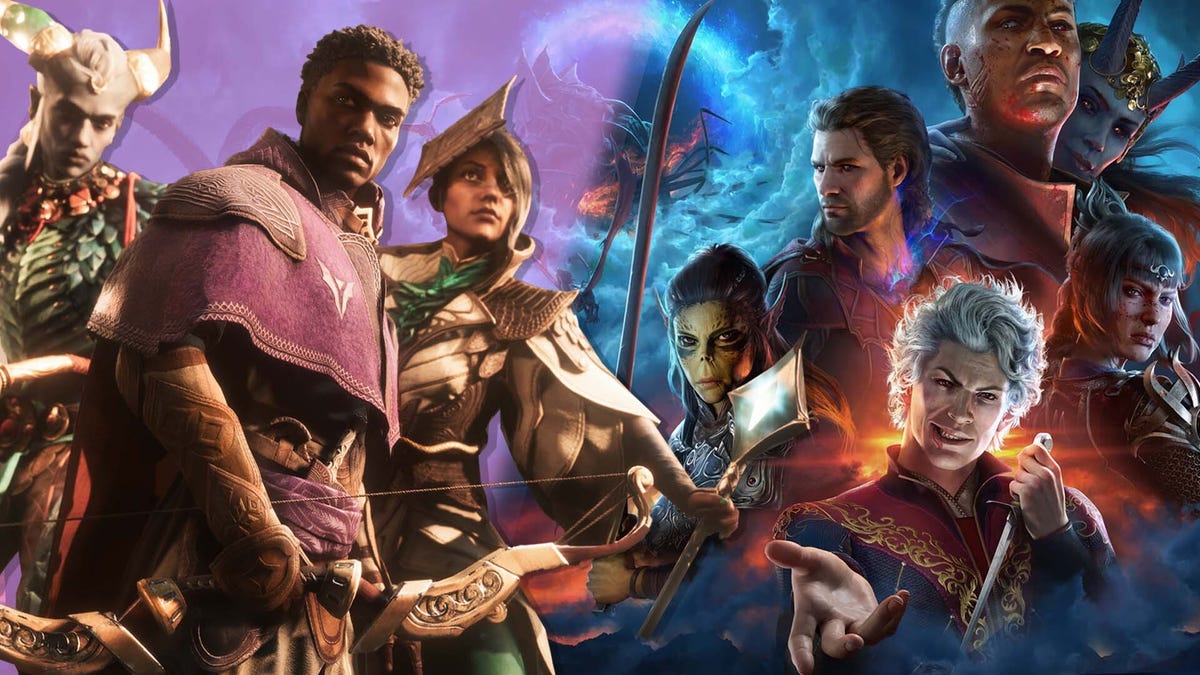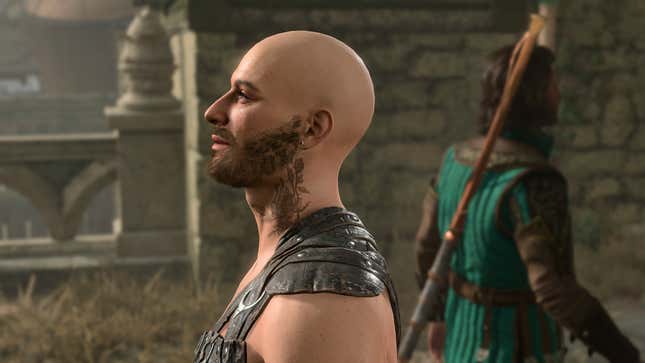Tech
Let’s Skip The Dragon Age: The Veilguard Vs. Baldur’s Gate 3 Comparisons, Yeah?

In 2023, Larian Studios’ award-winning game Baldur’s Gate 3 filled a void in RPG fans’ hearts. As of last year, BioWare, the developer behind Dragon Age and Mass Effect, hadn’t released an RPG in six years. Larian’s take on the Dungeons & Dragons ruleset checked off a lot of boxes for fans who wanted a party-driven RPG full of game-changing decisions, lovable and complicated characters, and a sprawling, impressively designed world.
As Larian was sweeping game of the year awards last year, BioWare was working away on the reportedly troubled fourth Dragon Age game. Fans noted that the EA-owned studio releasing a fantasy RPG within a year of one of the most acclaimed games of the past decade was doomed to invite comparisons—potentially unflattering ones. But now that we’ve seen The Veilguard in motion, I’m more convinced than ever that pitting the two games against each other is a superficial waste of time.
This has happened before. In 2014, Dragon Age: Inquisition won plenty of game of the year awards, only to be shortly followed by The Witcher 3: Wild Hunt. CD Projekt Red’s RPG arguably stole BioWare’s thunder as the big fantasy RPG on campus, and drew attention to some of Inquisition’s flaws like its mediocre open-world. But as ex-Kotaku writer Kirk Hamilton pointed out back in 2015, BioWare had much better relationship dynamics and world navigation than The Witcher 3. But comparing the two is tedious, and I’m already feeling that tedium after seeing an hour of The Veilguard at Summer Game Fest.
Yes, Dragon Age and Baldur’s Gate are both fantasy RPGs with a focus on their companions, but even a brief look at Veilguard shows how different these two games are. Baldur’s Gate 3 is a CRPG similar to the first Dragon Age game, while BioWare has gone full action RPG for The Veilguard. Systemically, these two games could not be more different. There will undoubtedly be people who are disappointed that Dragon Age is leaning harder into the action RPG subgenre after Baldur’s Gate 3 pulled off the tactical approach so well, but to that I say: Just play Baldur’s Gate 3 again.

Is Baldur’s Gate 3 what Dragon Age should be in 2024? That’s complicated
PC Gamer’s Lauren Morton wrote about how Baldur’s Gate 3 feels like the version of Dragon Age: The Veilguard people probably would have envisioned 15 years ago. If you played Dragon Age: Origins in 2009 and imagined the series a decade and two console generations later, Baldur’s Gate 3 is probably a close approximation of what the most pie-in-the-sky version would look like. For Morton, this goes beyond sticking to tactical combat, also involving its darker tone, as The Veilguard’s quippy dialogue and acrobatic action feel like something out of a modern franchise film.
Morton asks what Dragon Age’s identity is at this point, but I feel the series has had an identity problem for 15 years. BioWare has maintained that each Dragon Age game is a very specific moment in time for its universe, and that’s why it changes locations, protagonists, and styles each time. That has often been used as a shield to deflect criticism of how poorly it handles continuity and payoff, but it’s also why I think the Baldur’s Gate 3 comparison feels like clinging onto something that’s been gone for over a decade. Dragon Age has never been able to successfully reconcile its supposed anthology format and its desire to have interconnected stories, but it does mean that I accepted a long time ago that trying to determine what makes a Dragon Age is as futile as trying to determine what Final Fantasy is.
Dragon Age: The Veilguard is going to be divisive. It already is. When you’ve spent ten years waiting for something with an idea of what it would be in your head, if it’s not that thing, you’re bound to be disappointed. But ultimately, The Veilguard is not trying to accomplish the same things Baldur’s Gate 3 did. Its focus on action-based systems means we’re probably not going to get the highly reactive, Dungeons & Dragons-esque spells and problem-solving mechanics. But it does mean we’re going to get what looks like a frenetic action RPG that continues the story we’ve been waiting a decade for. That might not be what you wanted from Dragon Age, but that other game exists.
We can unpack whether or not The Veilguard accomplishes what it’s setting out to do when it launches in the fall, but if the conversation starts and ends with “I wanted The Veilguard to be this specific thing,” we’re looking at the wrong franchise. After seeing The Veilguard pivot in such a different direction from its predecessor that inspired Baldur’s Gate 3, I’m just not interested in examining it through the lens of this comparison. It’s the least interesting way to dissect art, and now, it feels like a disingenuous way to dissect these two games. We’ve got two cakes that are similar shapes but different flavors. We can eat them both.
.


)






